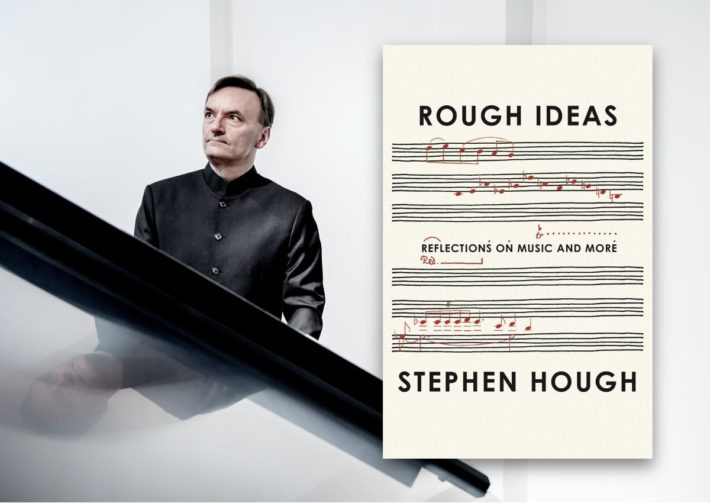Image: ©️ Sim Canetty-Clarke
“Rough Ideas” is a collection of short essays Stephen Hough describes as “jottings” that he has conceived while traveling around the world for his performances. The book is divided into six parts which discuss, among many other things, his views on classical music as an art form and what it means to be a musician; his experiences, both good and bad, as a performer; the technical art of playing the piano; his observations on certain pieces and composers; a discussion of other disciplines such as painting, poetry, and math and their connections to music; and finally, his musings on faith and religion.
The sense of large-scale organization, however, is nicely counterbalanced by the fact that the essays themselves in each section do not follow any sort of preconceived order – readers could potentially start at any section in the book and not feel like they’d missed a beat. I personally found a delightful charm in the freely meandering thoughts, complemented by a style that is lighthearted yet illuminating and, most importantly, genuine. Although hough’s writings reveal that he contemplated carefully many aspects of music, the language he uses is not by any means limited to musicians. When he does try to describe something specific to pianists or classical music, he finds a way to make it approachable for everyone by creating analogies to art, literature, and even sport.
There are quite a few insightful essays in the book, which makes it difficult to choose favorites. However, the following make the greatest impression. From the first section (“Forum”), “Can you be a musician and not play or read music”? describes what hough thinks music entails. To him, music is something of an experience: if one can be cognizant and appreciative of it, then being able to read notes is not all that important. I found this sentiment impactful since (and he expresses this as well), this may open doors to make classical music an inviting and accessible art form to a much wider audience. In the second section, (“Stage”), “Nervous on Stage” about the concept of stage fright, made me look back upon my own experiences as a music student and performer. It was, frankly, reassuring to realize that even a musician as seasoned and respected as Hough goes through exactly the same things. But the best takeaway was his input on why humans in general experience this phenomenon, to which his answer is: “It all boils down to ‘What will people think?’. His ensuing explanation involves a discussion on how recognizing humility and a larger perspective (“dropped notes are not broken bones”) might allay some of these fears, words that a budding musician, a public speaker, or a sportsman would find valuable if not inspiring.
And in the third section, (“Studio”), there are the valuable tidbits from a master in the unassumingly titled “Random Practice Tips”. As one of the longer essays, hough discusses ideas on the approach to hurdles in a piece, interesting uses of the metronome, and the value of practicing at different speeds, the best way to mark a score, and even how to practice away from the instrument. Many of these realizations can only come from years of experience; the way Hough describes them are not didactic, but informative for both a serious observatory student or the musical enthusiast. Upon finishing the book, the biggest overall idea is that classical music is a comprehensive art, that one could reach a much better understanding of by delving into other areas of intellect or human nature. Its study is consequently open to everyone and that one should seek creativity and a unique voice in the study of any work.
“Rough Ideas” allows us to get to know the individual behind the great musicianship and a long career of recordings and concerts. Who we find is someone intelligent, humble, and open-minded. This book is, without a doubt, a must-read.

“Rough Ideas” – Stephen Hough
Farrar, Straus and Giroux, 464 pages.
ISBN: 9780374721404
Read more classical music reviews or visit The Classic Review Amazon store











